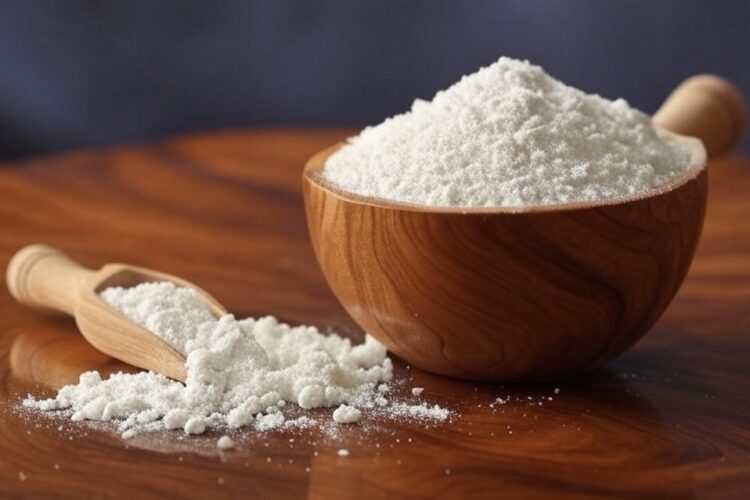Xylitol is a naturally occurring sugar alcohol that has gained significant attention as a sweetener and sugar substitute in recent years. Found in small amounts in fruits like strawberries and vegetables such as cauliflower, it’s derived commercially from birch trees or xylan-rich plant materials through a fermentation process. Unlike traditional sugar, xylitol boasts a low-calorie profile—about 40% fewer calories than sucrose—making it a popular choice for weight management and those seeking healthier alternatives. But its appeal goes far beyond its taste. From dental health to potential cardiovascular risks, xylitol’s multifaceted nature makes it a fascinating subject worth exploring in depth.
What Is Xylitol?
Chemically classified as a polyol, xylitol is a five-carbon sugar alcohol with a sweetness comparable to table sugar but a drastically different metabolic impact. It has a low glycemic index, meaning it doesn’t spike blood sugar or insulin levels, earning it a reputation as diabetes-friendly. This property stems from its unique structure, which the human body metabolizes slowly and incompletely. Extracted from natural sources like birch bark or corn cobs, xylitol undergoes a process that isolates xylan, converting it into a crystalline powder used in everything from pharmaceuticals to cosmetics.
A Dental Health Powerhouse
One of xylitol’s most celebrated benefits is its role in oral care. Unlike sugar, which fuels Streptococcus mutans—the bacteria responsible for tooth decay and cavities—xylitol inhibits their growth. By reducing plaque formation and bacterial adhesion, it’s become a staple in chewing gum, candies, toothpaste, and mouthwash. Studies suggest it can even help prevent ear infections like otitis media in children by limiting bacterial colonization in the nasopharynx. Dentists often recommend it as a proactive measure for maintaining dental health, especially for those prone to cavities.
Beyond the Mouth: Broader Health Impacts
Xylitol’s benefits extend to other areas of the body. As a prebiotic, it supports gut health by feeding beneficial bacteria, potentially aiding digestion and even boosting the immune system. Some research points to its role in reducing respiratory infections and sinusitis, thanks to its antibacterial properties. There’s also evidence suggesting xylitol may enhance bone health by improving calcium absorption and exhibit anti-inflammatory and antioxidant effects that could benefit skin health and collagen production. For those on keto-friendly or low-FODMAP diets, xylitol fits seamlessly as a sweetener that aligns with dietary restrictions.
Culinary and Lifestyle Uses
In the kitchen, xylitol shines as a versatile sugar substitute. It’s heat-stable, making it suitable for baking, though it lacks the fermentation properties of sugar, so it won’t work in yeast-based recipes. With only 2.4 calories per gram compared to sugar’s 4, it’s a go-to for weight management without sacrificing sweetness. You’ll find it in candies, chewing gum, and even pharmaceuticals like cough syrups. Its natural origins and clean taste also make it a competitor to other sweeteners like erythritol and stevia.
Safety and Dosage: What the FDA Says
The FDA has classified xylitol as “generally recognized as safe” (GRAS), affirming its safety for human consumption within reasonable limits. Typical dosages in gum or mints—around 5 to 10 grams daily—pose little risk for most people. However, overconsumption can lead to side effects like diarrhea, gas, and other digestive issues, as the body doesn’t fully absorb sugar alcohols. These effects are usually mild and dose-dependent, subsiding as the body adjusts.
The Dark Side: Risks and Controversies
Despite its benefits, xylitol isn’t without controversy. Recent studies have linked high blood levels of xylitol to an increased risk of heart attack, stroke, and other cardiovascular events, possibly due to its effects on blood clotting. While these findings are preliminary and not yet conclusive, they’ve sparked debate about its long-term safety. For humans, moderation seems key, but for dogs, the stakes are much higher. Xylitol is highly toxic to canines, causing rapid hypoglycemia and potentially fatal liver failure even in small amounts. Pet owners must keep xylitol-containing products—think gum or toothpaste—far from reach.
Xylitol vs. Other Sweeteners
How does xylitol stack up against alternatives like erythritol or stevia? Like erythritol, it’s a sugar alcohol with zero net carbs, but xylitol has a slightly higher calorie count and a more pronounced cooling effect on the tongue. Stevia, a plant-derived sweetener, has no calories but a distinct aftertaste some find off-putting. Xylitol’s edge lies in its dental benefits and natural sourcing, though its digestive side effects can be a drawback compared to erythritol’s gentler profile.
Practical Applications and Innovations
Beyond food, xylitol’s versatility shines in cosmetics, where it acts as a humectant in skincare products, and in pharmaceuticals, where it enhances drug delivery. Its prebiotic properties are being explored for gut health supplements, and its potential in combating respiratory infections has led to nasal sprays and lozenges. Researchers are even investigating its role in bone health and skin health, suggesting xylitol could become a multi-use compound in wellness circles.
The Bottom Line
Xylitol is more than just a sweetener—it’s a compound with a remarkable range of applications and implications. From preventing tooth decay and ear infections to supporting weight management and immune system function, its benefits are well-documented. Yet, its potential links to cardiovascular risks and toxicity in dogs remind us it’s not a one-size-fits-all solution. Whether you’re chewing xylitol gum for oral care, using it in a keto-friendly recipe, or exploring its prebiotic effects, understanding its full profile is key. Moderation, awareness, and context—like avoiding FODMAPs for sensitive guts or keeping it away from pets—ensure xylitol remains a valuable tool in the modern health arsenal.
This sugar alcohol, born from birch trees and fruits, has carved out a unique niche. It’s a testament to nature’s complexity, offering a blend of sweetness, science, and scrutiny that keeps it relevant in conversations about health, diet, and beyond.






